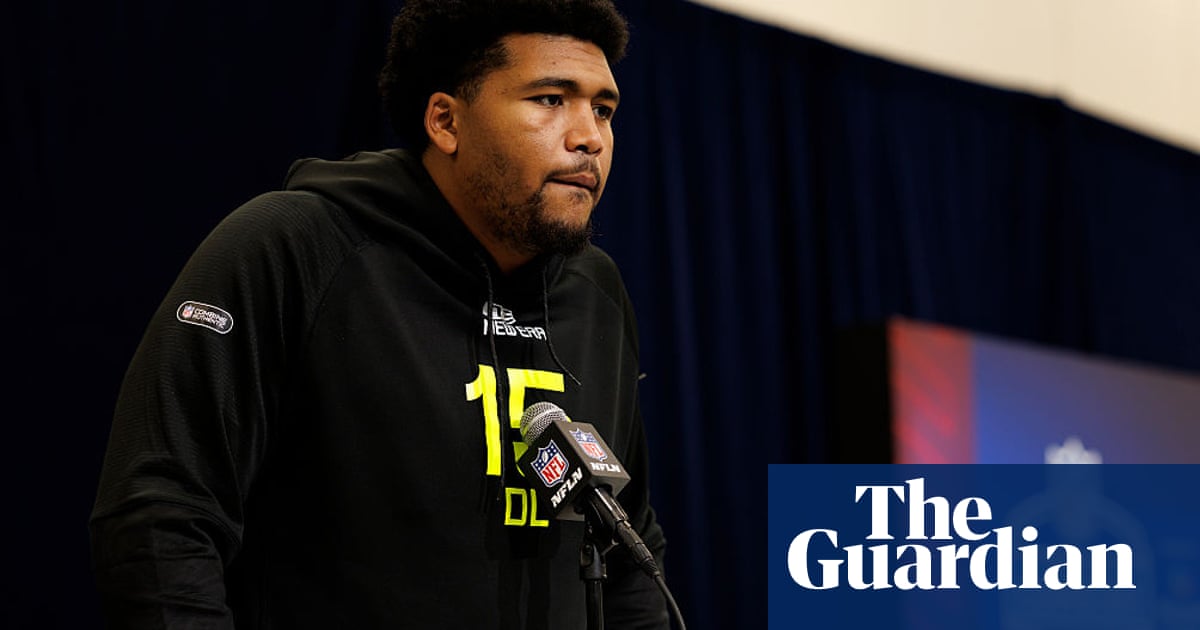Tiffany Saine, the mother of Derrick Harmon, died shortly after learning thePittsburgh Steelershad selected her son with the 21st pick of the NFL draft.
Harmon was visibly emotional as he was picked, andthe ESPN broadcast showed a videoin which the defensive tackle spoke about his mother’s health issues and paid tribute to the positive effect she had on his life. Saine was on life support when Harmon was selected and the 21-year-old told reporters he was going to see her in hospital after Thursday night’s ceremony.
“It was a little bittersweet, man,” Harmon said of the moment he was selected. “My mom wasn’t with me, she’s at the hospital right now on life support, so that was a little bittersweet, because she worked as hard just as me to get to this moment.”
She died shortly after he told her he had been drafted by the Steelers,according to Gerry Dulac of the Pittsburgh Post-Gazette.
“On behalf of the entire Pittsburgh Steelers organization, I extend our deepest condolences to Derrick Harmon and his family during this difficult time,” Steelers president Art Rooney II said on Friday in a statement.
“Though we are excited to select Derrick in the first round of theNFLDraft, our hearts are heavy as we mourn the death of his mother, Tiffany Saine. We will support Derrick and his family however we can as he navigates this period of grief. In times like this, we hope Derrick finds comfort in the love and support from the organization and Steelers fans around the world. Our thoughts and prayers will continue to be with Derrick’s entire family.”
Saine suffered a stroke in 2022 that left her paralyzed on the left side of her body. Harmon said he used some of his endorsement earnings from his college career to buy his mother a wheelchair-accessible van. He also said her response to her health issues helped motivate him.
“After all those brain surgeries, man, she did not give up,” Harmon said. “She still took me to practice, still went to work, and I always, always, in the back of my head from the beginning of my college career was, why can’t I keep going? If I’m tired, I’m injured, whatever it is, why can’t I keep going if she can get up and she keep going after brain surgery.”
